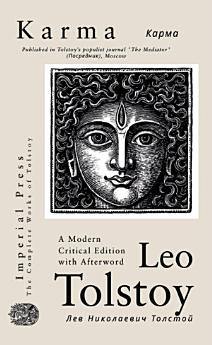Karma
O ovoj e-knjizi
Set against late 19th-century Russian society, the work critiques materialism and social inequality while advocating spiritual enlightenment through compassion. Tolstoy employs a simple yet profound parable format to illustrate how actions reverberate through time, affecting both self and others. The historical context of Russia's social upheavals and Tolstoy's own spiritual crisis during this era underscore the work's themes of moral accountability and interconnectedness. "Karma" remains significant for its cross-cultural philosophical synthesis and its place in Tolstoy's broader ethical project.
This work functions as a philosophical exploration of human nature, morality, and the consequences of actions, presenting universal truths that encourage readers to reflect on their conduct and accountability for their fate. The composition posits that "personality does evil, personality suffers from it. Personality refrains from evil, and personality is purified. Purity and impurity belong to the personality: no one can purify another. Man himself must make an effort; Buddhas are only preachers". This text reflects Tolstoy's engagement with spiritual concepts beyond traditional Christian dogma, seeking universal principles of ethical living.
This critical reader's edition presents a modern translation of the original manuscript, crafted for the modern reader with clean, contemporary language and simplified sentence structures that clarify his complex Russian phrasing and specific antiquated references. Supplementary material enriches the text with autobiographical, historical, and linguistic context, including an afterword by the translator on Tolstoy’s personal history, impact, and intellectual legacy, an index of the philosophical concepts he employs—emphasizing Existentialism and influence by Schopenhauer—a comprehensive chronological list of his published writings, and a detailed timeline of his life, highlighting the personal relationships that shaped his philosophy.




